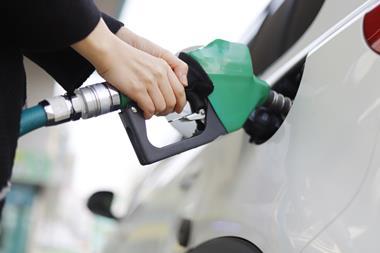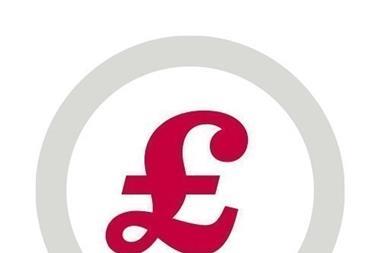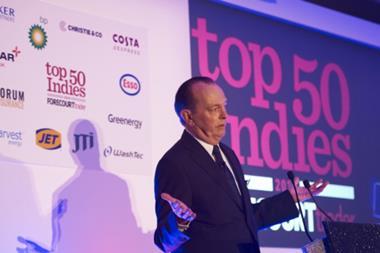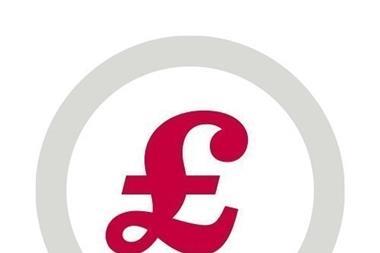
The run-up to Christmas produced a rash of stories in the media regarding retail fuel prices, with the usual claims that someone was over-charging (again) and that forecourt prices should have been ‘x’, ‘y’ or ‘z’ pence per litre lower than they actually were.
For once, the brunt of the criticism seemed to be aimed at the supermarkets rather than independent retailers – well, it makes a change, I suppose.
It’s true that the retail fuel market has been a bit ‘odd’ for the last couple of months. Between the likes of Costco at one end and the motorway service areas at the other, price differentials for a litre of either petrol or diesel have been as wide as I can remember in four decades of involvement in petrol retailing – approaching 50ppl in extreme cases. What has been even more unusual is that the ‘independent’ retail sector has been closer to the bottom of the range, while much of the supermarket estate has tended to be slightly higher up the price scale, much of the time.
Given that for most of the last 40 years the non-supermarket operators (and that includes the remaining oil-co-owned sites) have had to live with the supermarkets forcing them to apply lower gross margins than they really needed in order to prosper, nobody in the ‘independent’ sector will be sad to see that pressure relieved – even temporarily. As an aside, the very fact that there is a wide range of retail prices indicates that the consumer has more opportunity to select from than has historically often been the case.
But looking at the bigger picture, it’s worth making the point (again) that the very idea that some ‘consumer champion’ (and no surprise, it’s the RAC – again) can tell any petrol retailer what to price to charge at the pumps is complete arrogant and presumptive nonsense (I could put it rather more bluntly…). Since when have you heard anyone telling a retailer what price they should charge for a loaf of bread or a tin of baked beans? Or for that matter, when was the last time you saw some ‘consumer champion’ telling the hospitality industry what the price of a pint of beer should be? The latter example is an interesting one: over the years various consumer groups have put some heavy pressure on the hospitality operators regarding the prices of alcohol and soft drinks in pubs – usually followed by the same groups wailing loudly as more pubs shut their doors, permanently.
Here in the UK, retailing operates in a market economy. It’s not quite a ‘free market’ in the purest sense of that term as used by academic economists, since there are various structural and legislative constraints, and it’s also what they would call a ‘mature’ market. However, send the academics back to the ivory towers and let’s just call it a market economy. One in which retailers buy in the goods that they want to sell, then have to calculate how much mark-up they need to apply to those goods in order to cover their own costs and also to make a profit on each transaction. And that’s the nub of the issue: the costs incurred by the retailer and the need to make a profit. There’s no point in making or selling a product if you can’t make a profit – that’s the only point of being ‘in business’ in a market economy.
On the other side of economic activity are the consumers: in a market economy they are free to decide which product they wish to buy, from which retailer. That decision may largely be driven by price, although other factors will also apply – for example convenience, or brand loyalty. In the case of petrol retailing, we have been told countless times over the years that there is really no ‘brand loyalty’ to speak of, and that consumer choice is very largely driven simply by price.
The consumer is supposed to shop-around for the best price (if that’s their most important buying decision), not simply assume that because their usual retailer is historically at the lower end of the price spectrum, they ‘must’ always be in that position. And if the queues outside my nearest branch of Costco – or indeed on the forecourt of my nearest independent dealer – are any guide, many of them have indeed done just that.
But let’s go back to the retailer and the costs that they need to recover. Start with establishment costs: they include everything from the cost of the original investment in property, building and equipment depreciation, business rates, etc. Then we have operational costs such as maintenance, electricity and staff wages. The latter two are both causing all retailers much anxiety at the present time since they appear to be on a very steep upward curve. Let’s not forget transaction costs, as the base price of product rises, so does the overall cut taken by the credit card companies, banks, etc. All of those costs need to be covered, and then something added on top that will constitute a ‘profit’.
As mentioned above, pay rates (and hence wage costs) are a very thorny issue throughout the economy at the present time. From train drivers to NHS staff, we’re seeing pay claims and associated industrial action that few of those who weren’t around in the early 1980s will ever have seen before. And that’s almost a separate issue from the apparent shortages of labour throughout the wider economy. For as long as I can remember, the ‘independent’ fuel retail sector has complained of the difficulty of recruiting and retaining staff when faced by the competition offered by supermarket pay rates. I’ve lost track of how many times I’ve heard site owners/operators moaning that they’ve lost trained, reliable forecourt staff who’ve left “to go stack the shelves at Sainsbury’s” (other supermarkets are available) because the pay was better, and there were all sorts of additional benefits. To my knowledge, few if any of the jobs offered by the supermarkets are at Minimum Wage – most are considerably better-paid. And some of the supermarkets have quietly raised pay rates not just once, but twice in the last 12 months. All of that has to be paid for somehow.
The point of all this is simple. Unless any of the self-declared ‘consumer champions’ are in a position to know the details of any retailer’s trading and profit/(loss) accounts, then they are in no position whatsoever to know what mark-up or margin that retailer needs to apply to the ‘wholesale’ price of anything in order to stay in business. That applies to milk, bread, and tins of beans as much as it does to petrol or diesel. And even if they had the cost information (which they don’t) they are in no position to tell any retailer what profit that retailer should be making.
In a market economy, retailers who make ‘too much’ profit (whatever ‘too much’ means) will find that eventually customers go to competitors who are either more efficient (ie have lower costs) or who settle for lower profits – in either case with consequently lower prices. But for someone to play with a simple spreadsheet formula that takes the ’wholesale’ price of petrol and diesel and magically outputs what they claim that the retail price ‘should’ be, shows both ignorance and arrogance. That’s simply not how a market economy works.

































No comments yet